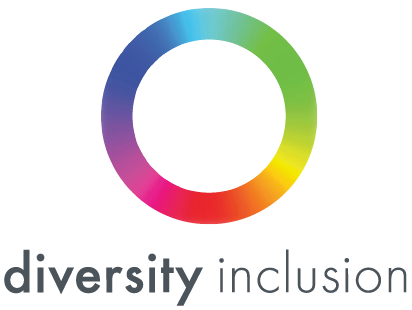Why diversity and inclusion (D&I) is so important during COVID-19 and where to start
The proof is in! The latest research from McKinsey has revealed that companies pulling back on diversity and inclusion (D&I) in the current COVID-19 pandemic environment are placing themselves at a significant disadvantage.
Not only could they fail to better position themselves for growth and renewal, but the key tenants of D&I, namely innovation and resilience, will be lacking in their organisations.
So, how can your organisation use D&I to recover faster and flourish in challenging times? This article will provide all the evidence and tips you need to make D&I work for your business right now.
How is COVID-19 affecting workplace diversity and inclusion?
When crises hit, businesses often focus on their basic needs. This can mean that previous strategic priorities such as D&I have the tendency to recede.
Unfortunately, we are seeing this trend play out today. A Pulse survey found that over 27% of organisations have suspended most of their D&I activities due to the pandemic.
Job losses and workplace automation growth are having implications for D&I in the current pandemic environment. However, the greatest D&I impact can be seen in remote working conditions. When managed poorly, the result has been an erosion in inclusion, decreased feelings of belonging, and an increase in uncertainty.
So, now is not the time to let your D&I activities slip – and the proof is in the pudding.
Why is diversity and inclusion so critical during COVID-19?
The correlation between D&I and higher performance has been verified in global studies, time and time again. An earlier McKinsey report - Diversity Wins: How Inclusion Matters, highlights the D&I business case – a must-read.
McKinsey’s latest research indicates that D&I is critical in times of crisis and can aid in business recovery. This is borne out right now with current research indicating that cities and countries with women leaders are managing the pandemic more successfully*.
Furthermore, research** has found that companies who invest in D&I will be better positioned to create more effective and adaptive teams that recognise D&I as a competitive advantage.
Considering this research, there has never been a better time to reaffirm your organisation’s commitment to D&I. This decision can move the dial on 5 critical business domains resulting in greater growth and profitability. Here are the 5 opportunities awaiting you.
Top 5 opportunities - how D&I can transform your business
Opportunity 1 – Retaining talent
A remote working ethos provides the opportunity to retain diverse talent as well as unlock new talent pools such as working parents, dual-career couples, single parents, people with disabilities and so on. In addition, the advantages of flexible work often appeal to women who carry a disproportionate share of family duties.
Creating a flexible working culture that has leadership support and robust internal infrastructure is key to retaining talent, increasing employee tenure, and positioning your organisation as an employer-of-choice.
Opportunity 2 – Improving decision-making
In a crisis such as COVID-19, effective decision-making and enhanced problem-solving skills are critical to organisational success.
By valuing diversity, people are more likely to speak-up, contribute, and participate. This diversity of thought brings an array of perspectives to the table, enhancing innovation, creativity and problem-solving.
Research has also found that diverse teams are more likely to focus on facts and hold each other accountable, thus driving more effective business outcomes.
Opportunity 3 – Driving customer insight
Competitive advantage is often derived from anticipating shifts in consumer trends and consumption patterns. With diverse teams proven to drive greater innovation, the ability for an organisation to anticipate consumer needs, understand consumer insight and position themselves for product and service success, is markedly increased.
Opportunity 4 – Increasing employee motivation and satisfaction
Leadership teams have an opportunity to nurture their employees during times of crisis and vulnerability, increasing their motivation, satisfaction, feelings of belonging and intrinsic value.
This can include developing inclusive, agile work teams to capitalise on the feelings of solidarity during the pandemic, supporting flexible working, and taking advantage of new talent pools to bring greater diversity into the business.
Opportunity 5 – Driving corporate social responsibility activities
Embracing D&I right now will set companies in good stead to ride through downturns. Without the benefits that D&I affords, organisations are at greater risk of losing customers, attracting mediocre talent, and producing inferior performance in comparison to their peers.
During a crisis such as the pandemic, organisations have an opportunity to re-position themselves and really live their core values. This may involve supporting communities or those in need, organising employee volunteering activities, or collaborating with other organisations to minimise the impact of the pandemic on individuals and society.
Whatever it may be, it’s important to realise that everything is interconnected, and that includes consumers, organisations, governments, and the fabric of society that we live in. Without healthy and functional communities, our businesses will suffer.
Organisations that focus on diverse and inclusive workforces will be able to better navigate tough times, coming out the other side more resilient and robust. We encourage you to reassert your commitment to D&I and reap the rewards that equality, fairness, belonging, inclusion, and diversity has to offer.
We encourage you to read the full McKinsey report – Diversity Still Matters for greater detail, context and references to support this article.
Interested in learning more about how D&I can transform your organisation? Chat to us!
*Tomas Chamorro-Premuzic, “Are women better at managing the COVID19 pandemic?” Forbes, April 10, 2020, forbes.com.
**Heidi Grant, Jacqui Grey, and David Rock, “Diverse teams feel less comfortable—and that’s why they perform better,” Harvard Business Review, September 22, 2016, hbr.org.

